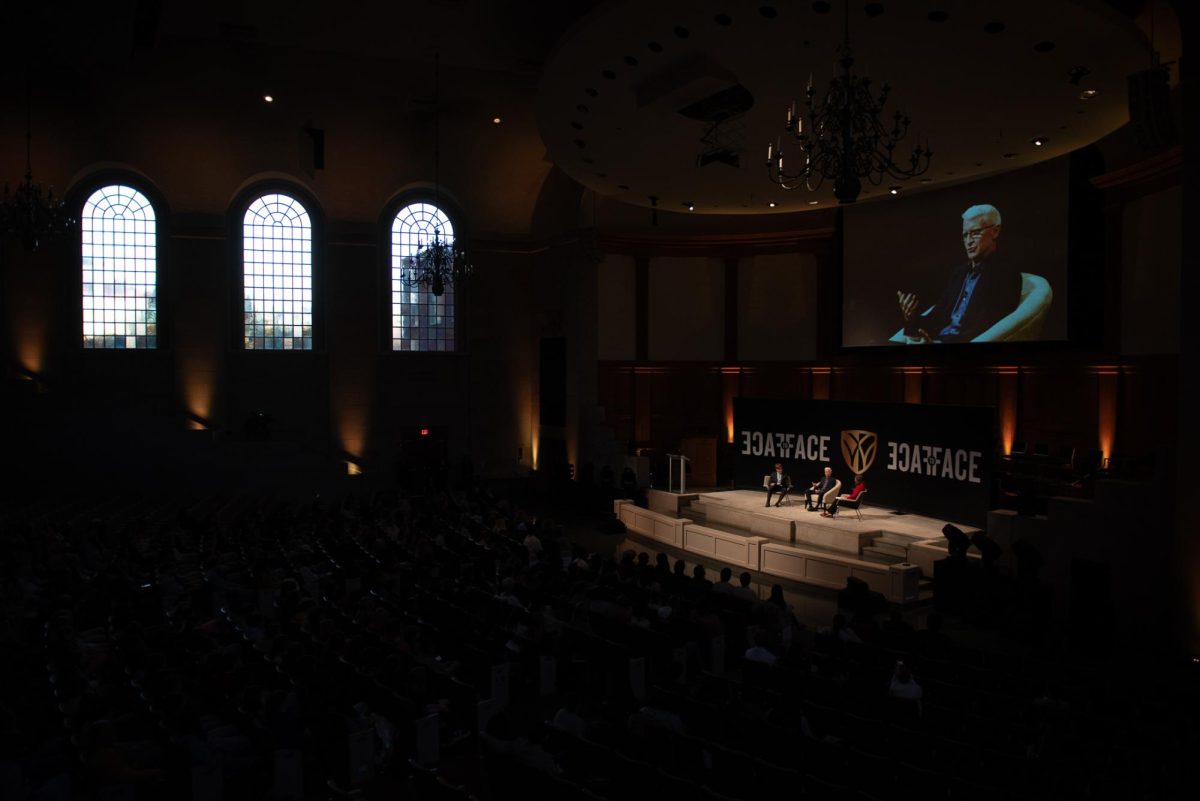For the second event in Wake Forest’s 2024-25 Face to Face Speaker Forum, campus welcomed American broadcast journalist Anderson Cooper on Nov. 21. Cooper is a news anchor for CNN’s “Anderson Cooper 360°” and a correspondent for CBS’s “60 Minutes” and has received several major journalism awards for his work. Prior to the public Face to Face event, Wake Forest hosted a student-facing event at which Cooper shared advice and vulnerability with the student population.
Cooper was interviewed by senior Aiden Norris and junior Isabella Romine, who are both members of Wake Forest’s Leadership and Character program. Cooper reflected on the beginning of his journey into broadcast journalism and the passion behind his work. Cooper engaged audience members with the story of his first reporting work, for which he faked a press pass and snuck into the war zones in Myanmar to shoot a story.
“I knew then that this was what I wanted to do,” Cooper said. “I thought it was an amazing thing to be able to go to a place and talk to people, learn things and then have to put together a story about what these people are going through in their struggles.
Reflecting on his initial spark of passion for storytelling, Cooper recalled a life-changing semester he spent riding through sub-Saharan Africa, camping out every night and spending his days meeting people living lives vastly different than his own. It was a pivotal time in Cooper’s life, changing his views on the world and his future.
“I learned that the reality of life for the vast majority of people on this planet is a completely different reality than we live here every day,” Cooper said. “It was eye-opening. I didn’t know what I wanted to be, but I knew I wanted to have more opportunities like this, to talk to people from different walks of life.”
Cooper also discussed his podcast “All There Is” and the topics of loss, love and healing that he focuses on in his episodes. Through the death of his brother and both parents at different times in his life, Cooper experienced firsthand the loneliness of grief and created his podcast as a way to build community and conversation around vulnerability and hardship.
In his years of reporting in war zones and disaster-fallen areas, Cooper said has found significant value in learning that no individual is alone in their grief and sorrow.
Freshman Sasha Seliutina found Cooper’s openness to be the most meaningful part of the student-facing conversation, as it connected with the hardship of humanity that most of the audience could relate to in some way.
“I found his vulnerability and truthfulness about tragedies in his life to be really raw and moving,” Seliutina said. “It was fascinating how he described the existence of both pain and hope in war zones, especially as the whole audience could relate to the universal grief he described.”
Following the discussion of Cooper’s own experiences, the talk touched on the potential future of journalism in a rapidly changing world of media and information. Cooper shared his thoughts on what the role of journalists will look like in an increasingly skeptical society, saying that the role of journalists should remain the same as it always has been — to report the facts and leave it to the viewers to interpret them.
To close out his first event of the evening, Cooper left the Wake Forest student audience with encouragement for their rapidly approaching futures, advising each student to remember the power they already hold within themselves.
“It’s important to remember who you are, where you came from and that what you’ve learned has value,” Cooper said. “You’ve been through things that have built up strength inside you that you don’t even realize you have. Just to get here you already have all the inner strength that you will need to get to the next level, to continue on the path.”
















